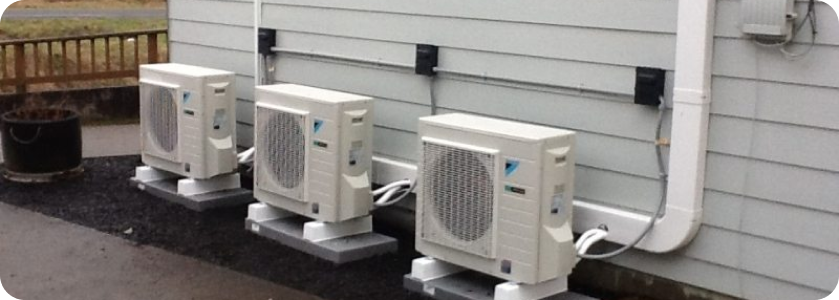Ducted VS Ductless Heat Pump: What are the differences?
Installing a heat pump or an air regulation system in a building is vital to enhancing comfort. There are two significant types of heat pumps: ducted heat pumps and ductless systems. Both types of heat pumps function by transferring heat. However, the significant difference is that a ducted system requires ductwork to push conditioned air through a building, while a ductless system releases conditioned air directly into the space. Also, a ductless mini split system uses inverter technology, while a ducted system only runs on blast.
Deciding which is best for your home’s heating and cooling needs is vital for your comfort all year round. Read on to explore the full concept of ductless heat pump vs ducted heat pump systems, including how they work, the pros and cons, the notable differences, and a guide on which to choose between the two available options
Ducted Heat Pumps
A ducted heat pump system that uses existing ductwork from an outdoor unit to move heated or cooled air around the home. In ducted systems, the air handler and the heat pump work synchronously to heat or cool air, which is pushed around the building through existing ductwork.
The ground source heat pumps use groundwater or other outdoor units as heat sources, and the water is distributed through a duct network.
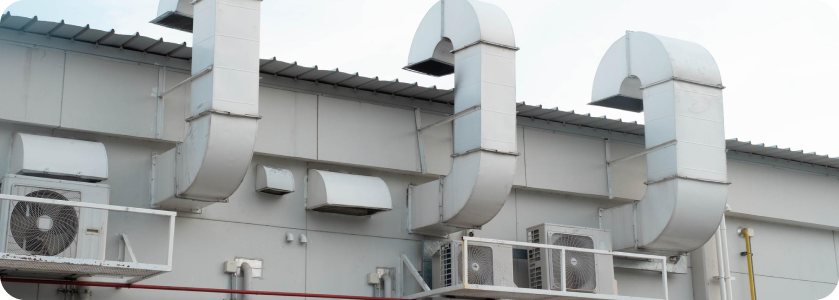
How Does A Ducted Heat Pump Work?
A ducted air source heat pump works by taking air from a source, which is heated and cooled before being pushed through a system of ducts throughout the building. A thermostat controls the system in one location that determines heating and cooling, depending on the environmental temperature.
Traditional ducted heat pumps can explore any of the air source heat pumps and ground source heat pumps for improved indoor air quality. The geothermal heat pump duct system can function as an air conditioner to create desired indoor comfort.
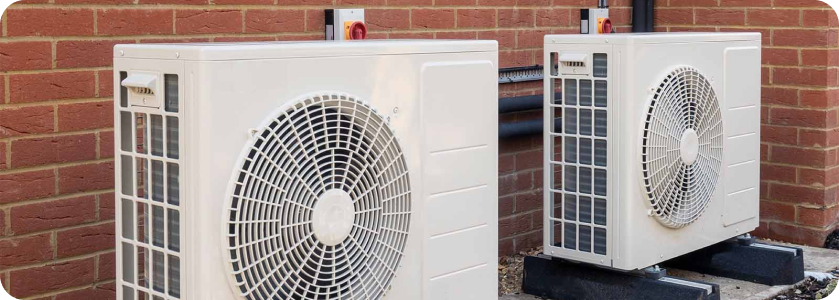
Pros of Ducted Heat Pumps
Some of the notable advantages of ducted heat pumps include;
- A ducted system has high energy efficiency and effectiveness. An air source heat pump can deliver about three times more heat than the energy it consumes.
- A single ducted heat pump system can serve an entire building through its ducts (depending on size)
- A ducted heat pump can function as both a heating and cooling system with minimal cooling costs and heating costs.
- Ducted heat pumps are convenient to use
- Ducts are usually built in walls to avoid messy components in view
- Ducted systems can have an outdoor unit, or a vent can be stationed in a room not in use
- A ducted heat pump is the standard, therefore it is easy to install especially with an existing ductwork
Cons of Ducted Heat Pumps
Some notable downsides of ducted heat pumps include;
- Air leaks in the ductwork can cause energy loss
- Dust, dirt, and debris can clog ductwork to make a mess, cause allergies, and necessitate repairs.
- There is potential for radiant energy losses.
- Installing ductwork can be more expensive and time-consuming.
- Rodents and vermin can invade your home through ductwork.
- Leaks in ductwork will reduce the energy efficiency of a ducted heat pump.
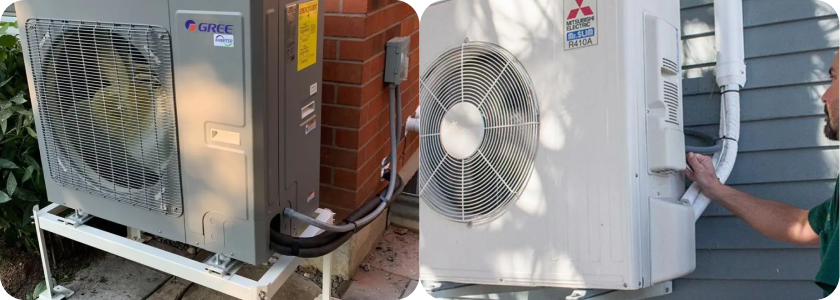
Ductless Heat Pumps
Ductless heat pumps, also known as mini split heat pumps, work by blowing the hot or cooled air directly into the building space. The mini split heat pump is more efficient for smaller space since they don’t work with ducts to push the heated or cooled air around bigger spaces.
The indoor unit of ductless mini splits is positioned strategically to heat where it is most cost-effective and energy-efficient.
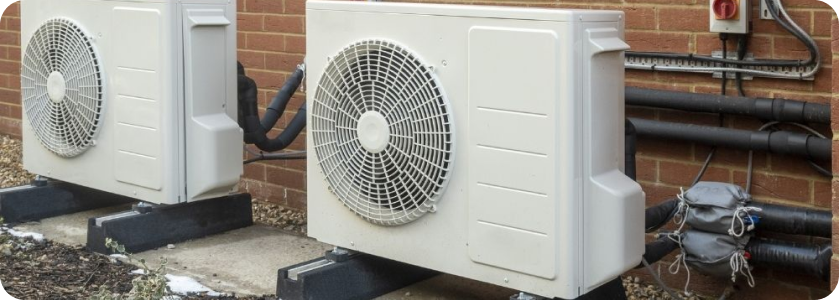
How Does a Ductless Heat Pump Work?
A ductless heat pump has both heating and cooling capacity, making it a suitable option for keeping your home comfortable all year. The ductless mini split connects a refrigerant line from one or more indoor ductless units to one or more outdoor units.
The indoor unit of the heat pump circulates the conditioned air. The bigger the space, the bigger the number of indoor ductless mini split units required.
Heating and cooling can be adjusted based on the time of the year or comfortability. Modern ductless mini split systems can be installed in the ceiling, wall, or floor.
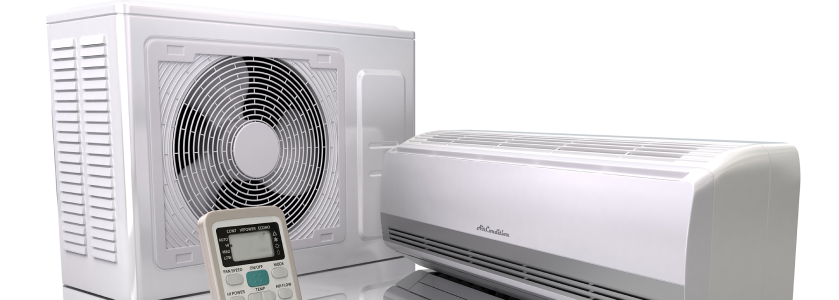
Pros of ductless heat pumps
Some of the most notable advantages of ductless heat pumps include;
- Easy to install and relatively inexpensive.
- Ductless mini split systems can transfer heat and also act as a cooling system.
- Ductless mini splits only require small openings on the floor, roof, or ceiling, making it less intrusive.
- A ductless system is easy to customize based on the temperature needed at different times of the year.
- Mini splits can cut heating costs by 60% and cooling costs by 30%, making them very energy-efficient.
- Indoor units of ductless heat pumps can be installed anywhere from the floor, roof, to ceiling.
Cons of ductless heat pumps
Some of the downsides of ductless heat pumps include;
- Despite not being intrusive, mini splits can be obstructive despite how carefully they are constructed
- Ductless heat pumps are only efficient in small spaces, and you might need several indoor units to power the entire house
- Requires high maintenance for washing and cleaning
- Requires the expert service of a professional installer; otherwise, several things can go wrong
- You would need to change the thermostat of each outdoor unit to customize the indoor temperature
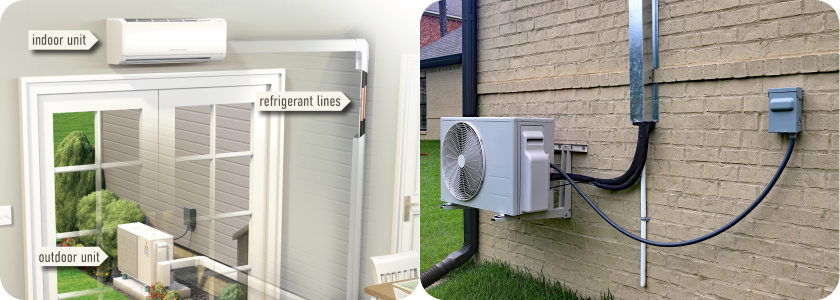
What are the differences between duct and ductless heat pumps?
The significant differences between duct and ductless heat pumps are the mode of installation and principle of operations.
A ducted heat pump system requires ductwork to push air through the necessary space. On the other hand, ductless heat pumps only require indoor and outdoor units connected with a pipeline.
Similarly, ductless mini splits use an inverter, which keeps running even when the power is off. Ducted units run on full blast, or they are off.
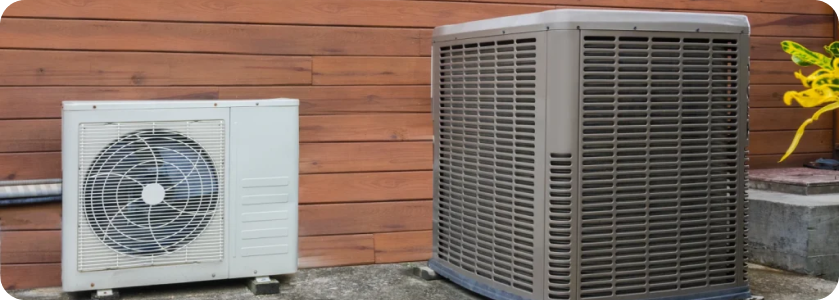
Ductless vs Ducted Heat Pumps: Which is Better?
The decision of which is better, a ductless or a ducted heat pump, mainly depends on personal needs and other factors. It is best to get an HVAC assessment to make an informed choice.
You should go for a ducted heating system if;
- You have an existing ductwork in very good shape with little or no repairs required.
- You don’t like how ducted air handlers look
You want to HVAC equipment out of view - The building is still under construction, and you can install the ductwork right from the start. You should favor a ductless heat pump system if;
- Your building is without existing ductwork, and you don’t want to incure the installation expenses.
- You don’t want to go through an extensive renovation by installing ducts
- Anyone in the home is vulnerable to suffering from allergies
- You have existing heat facilities like ceiling heats and cadets
- You only want an additional HVAC system for the home
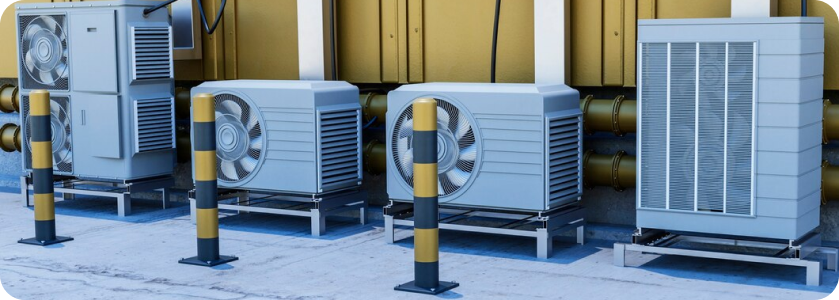
Major Factors to Consider When Deciding Between Ducted vs Ductless Heat Pump
Other factors to consider when deciding between a ducted vs ductless heat pump include;
- Energy efficiency
- Budget
- Appearance
- Air quality
- Existing building Plan
If you are ready to install your ducted or ductless heat pump, it is best to engage the service of professional installers to help you save costs and get your desired result.
